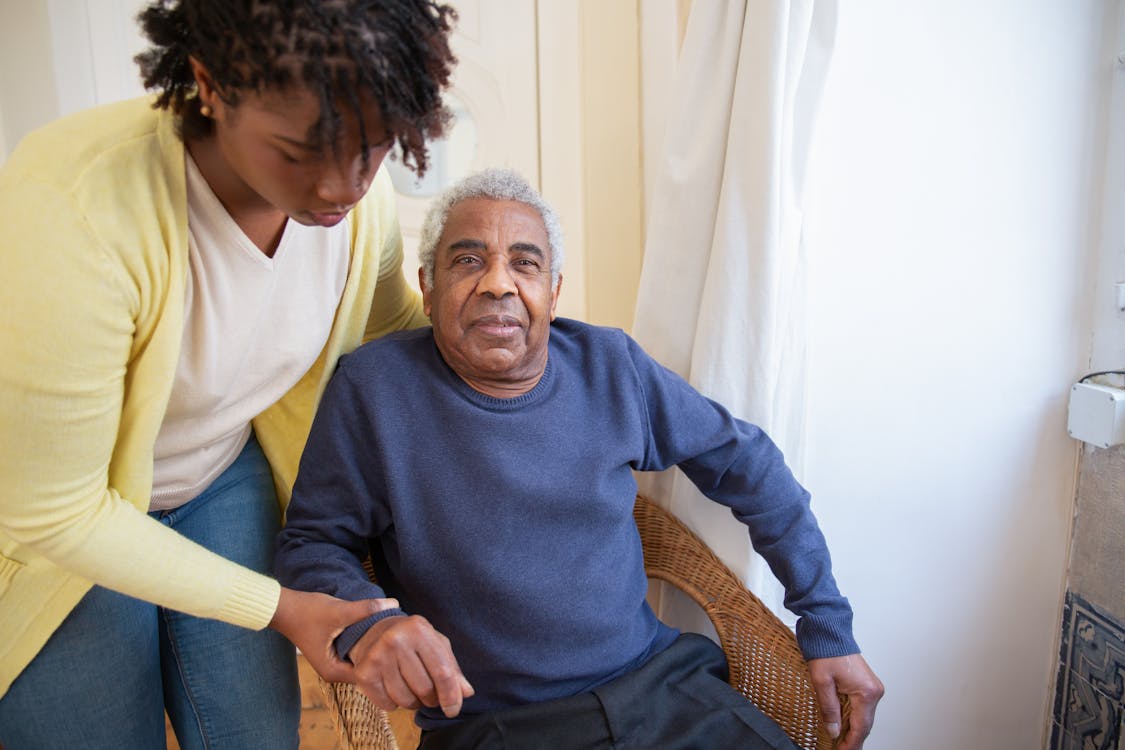Those with dementia, whether it’s Alzheimer’s or another type, have a disease that may affect their ability to report the abuse, recognize they’re being abused, or even remember they were abused. They might be embarrassed or humiliated that it’s happening to them and in that instance, they would not report abuse to anyone.
According to the American Psychological Association, there are five forms of abuse—and they are all equally terrible. However, each type of abuse has different signs to watch for, and different causes.
Types of Elder Abuse
.png)
Signs of Elder Abuse
The signs below may not always indicate abuse, but they are things to keep an eye out for when dealing with a loved one with dementia.
-
Indicators of physical abuse, neglect or mistreatment: bruises, broken bones, burns, and abrasions.
-
Indicators of emotional abuse: withdrawal from social activities and events, depression, a change in how alert the person is.
-
Indicators of sexual abuse: bruising around the genital region and secondary sex characteristics.
-
Financial abuse is indicated by: sudden changes in financial situations of relatives.
-
Indicators of neglect: bedsores, medical needs that are not being met, poor hygiene and unusual weight loss.
Also, if you notice your loved one panics or reacts poorly when you tell them that a certain individual is visiting, or they seem tense and argumentative with the person in question, that’s a good indicator of abuse. Your loved one may not be able to put into words why they’re afraid of this person, but they still react in a certain way.
Why Does Elder Abuse Happen?
A common reason elder abuse happens is because the elderly person is less likely to report it, or even recognize they’re being abused. More often than not, the one doing the abusing is the caregiver. A caregiver who is often stressed and takes it out on the person they are caring for.
An example of why a caregiver may abuse their loved one financially:
Jill and her mother did not get along for most of Jill’s life, and Jill was no contact for years—until she received a phone call from one of her siblings that their mother was living in filth and had recently been diagnosed with dementia and cancer.
None of Jill’s siblings want to take care of their mother, so Jill steps up because she feels like she has to.
In the short time that Jill was her mother’s caregiver, she would take her mother’s pain medication to sell for money and misused her mother’s funds and property.
In Jill’s mind, her mother owed her.
She has no social support in caring for her mother, and is having trouble making ends meet. Plus, none of Jill’s siblings would offer respite care so that Jill could take a break.
Jill convinces herself that everything she’s doing, her mother deserves, and that her mother should be grateful she’s not in a nursing home.

Risk Factors for Elder Abuse (As A Caregiver)
There is an 11.9% rate of abuse that’s been reported by elderly persons relating to their caregivers abusing them, according to NCBI’s study.
Some risk factors that make elder abuse more likely are:
- If the caregiver is inexperienced or unwilling to provide care.
- If the caregiver and older adult were not on good terms prior to their illness.
- If the caregiver has a spouse or children and cares for them as well.
- If the caregiver has high expectations of their dependent.
- If the caregiver has a history of depression.
Another big risk factor is if the caregiver also has a job outside of caregiving—and studies show that 60% of all caregivers in the US have a job outside of the home. This ties into the fact that many risk factors align with caregiver stress. Caregivers are “on call” most of the time.
Addressing Caregiver Stress
Many caregivers have a hard time asking for help because they’re a caregiver, surely they shouldn’t need help, right? Wrong. Caregivers with this attitude may feel isolated and depressed, as well as frustrated with their situation. It’s okay to ask for help.
Managing stress is hard, but it can be done, and the Alzheimer's Planning Center has a lot of resources.
You’re Not Alone — Resources To Help
If you want to discuss long-term care planning for your family member, download our free guide—Hope for Caregivers: ABC’s of Long-Term Care and Legal Planning to get an idea of what to expect.
Schedule a free 15-minute case assessment by calling 919-500-7757 today. We’ll help you figure out the next steps, and the Alzheimer’s Planning Center can help with placement to keep your loved ones safe.

